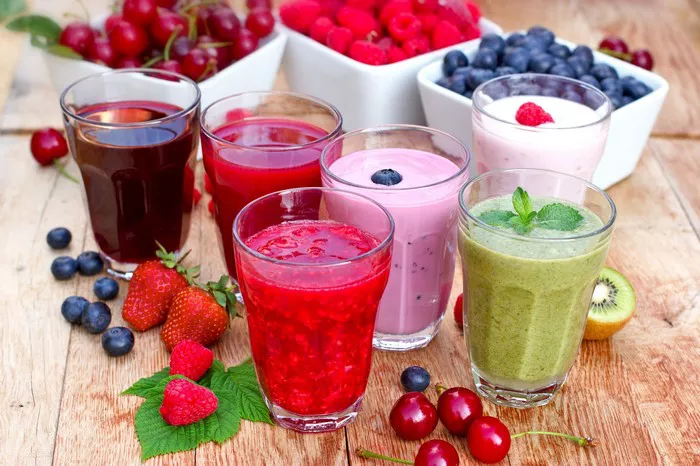Apple cider vinegar (ACV) has gained popularity in recent years for its potential health benefits, including aiding in weight loss, improving digestion, and regulating blood sugar levels. With its strong, tangy taste, some individuals seek ways to incorporate ACV into their daily routine in a more palatable manner. One common method is mixing it with juice. But does combining apple cider vinegar with juice affect its efficacy or pose any health risks? In this comprehensive guide, we’ll delve into the science behind apple cider vinegar, its potential benefits and risks, and whether mixing it with juice is a viable option.
Understanding Apple Cider Vinegar
Apple cider vinegar is made through the fermentation of crushed apples. This process yields acetic acid, the main active compound in ACV, along with various other organic acids, enzymes, and probiotics. The acetic acid content is believed to be responsible for many of the health benefits associated with apple cider vinegar.
Potential Health Benefits of Apple Cider Vinegar
- Weight Loss: Some studies suggest that apple cider vinegar may aid in weight loss by promoting a feeling of fullness, reducing calorie intake, and improving metabolism.
Blood Sugar Control: Research indicates that ACV may help lower blood sugar levels and improve insulin sensitivity, making it potentially beneficial for individuals with diabetes or those at risk of developing the condition. - Digestive Health: The acetic acid in ACV may promote digestion by increasing the acidity of the stomach, which can aid in the breakdown of food and absorption of nutrients. It may also help alleviate symptoms of indigestion or acid reflux for some individuals.
- Heart Health: Limited studies suggest that apple cider vinegar may have a positive impact on heart health by lowering cholesterol and blood pressure levels, though more research is needed in this area.
While these potential benefits are promising, it’s important to note that much of the evidence supporting them is based on animal studies or small-scale human trials. Further research is necessary to fully understand the effects of apple cider vinegar on human health.
Risks and Considerations
Despite its potential benefits, apple cider vinegar is not without its risks, especially when consumed in excessive amounts or in certain circumstances:
- Acidic Nature: ACV is highly acidic, which can cause irritation or damage to the teeth, throat, and stomach lining when consumed undiluted or in large quantities. Individuals with a history of gastrointestinal issues or dental problems should exercise caution when using apple cider vinegar.
- Interaction with Medications: Apple cider vinegar may interact with certain medications, including insulin and diuretics, potentially affecting their efficacy or causing adverse effects. It’s crucial to consult with a healthcare professional before incorporating ACV into your routine, especially if you’re taking medication or have underlying health conditions.
- Delayed Stomach Emptying: Some research suggests that apple cider vinegar may delay stomach emptying, which could exacerbate symptoms of gastroparesis or other digestive disorders.
- Allergic Reactions: While rare, allergic reactions to apple cider vinegar can occur, particularly in individuals with allergies to apples or yeast.
Given these potential risks, it’s essential to use apple cider vinegar in moderation and dilute it properly to minimize adverse effects.
Mixing Apple Cider Vinegar with Juice
Now, let’s address the question at hand: Can you mix apple cider vinegar with juice? The answer is yes, you can, and it’s a popular method for making the taste of ACV more palatable. However, there are some considerations to keep in mind:
- Dilution: Mixing apple cider vinegar with juice helps dilute its strong taste and acidity, making it more pleasant to consume. Start with a small amount of ACV and gradually increase the ratio as desired, but always dilute it with water or juice to minimize the risk of irritation.
- Choice of Juice: Opt for juices that complement the flavor of apple cider vinegar and provide additional nutritional benefits. Lemon juice, cranberry juice, and grape juice are popular choices that pair well with ACV. Avoid juices with added sugars or artificial ingredients, as they can counteract the health benefits of ACV.
- Frequency and Quantity: While mixing apple cider vinegar with juice can be a convenient way to incorporate it into your diet, moderation is key. Limit your intake to one to two tablespoons of ACV per day, and monitor your body’s response for any adverse effects.
- Personal Preference: Experiment with different juice combinations and ratios to find a flavor profile that suits your taste preferences. Some individuals may prefer a stronger concentration of ACV for its potential health benefits, while others may prefer a milder flavor.
In summary, mixing apple cider vinegar with juice is a viable option for those seeking to reap its potential health benefits while mitigating its strong taste. However, it’s essential to dilute ACV properly, choose juices wisely, and consume it in moderation to avoid any adverse effects.
Conclusion
Apple cider vinegar has garnered attention for its potential health benefits, ranging from weight loss to improved digestion. While mixing ACV with juice can make it more palatable, it’s crucial to do so responsibly and in moderation. Diluting ACV with water or juice, choosing nutritious juice options, and monitoring your intake are key factors to consider. As with any dietary supplement, consult with a healthcare professional before incorporating apple cider vinegar into your routine, especially if you have underlying health conditions or are taking medication. By understanding the science behind ACV and making informed choices, you can harness its potential benefits while minimizing risks to your health and well-being.























